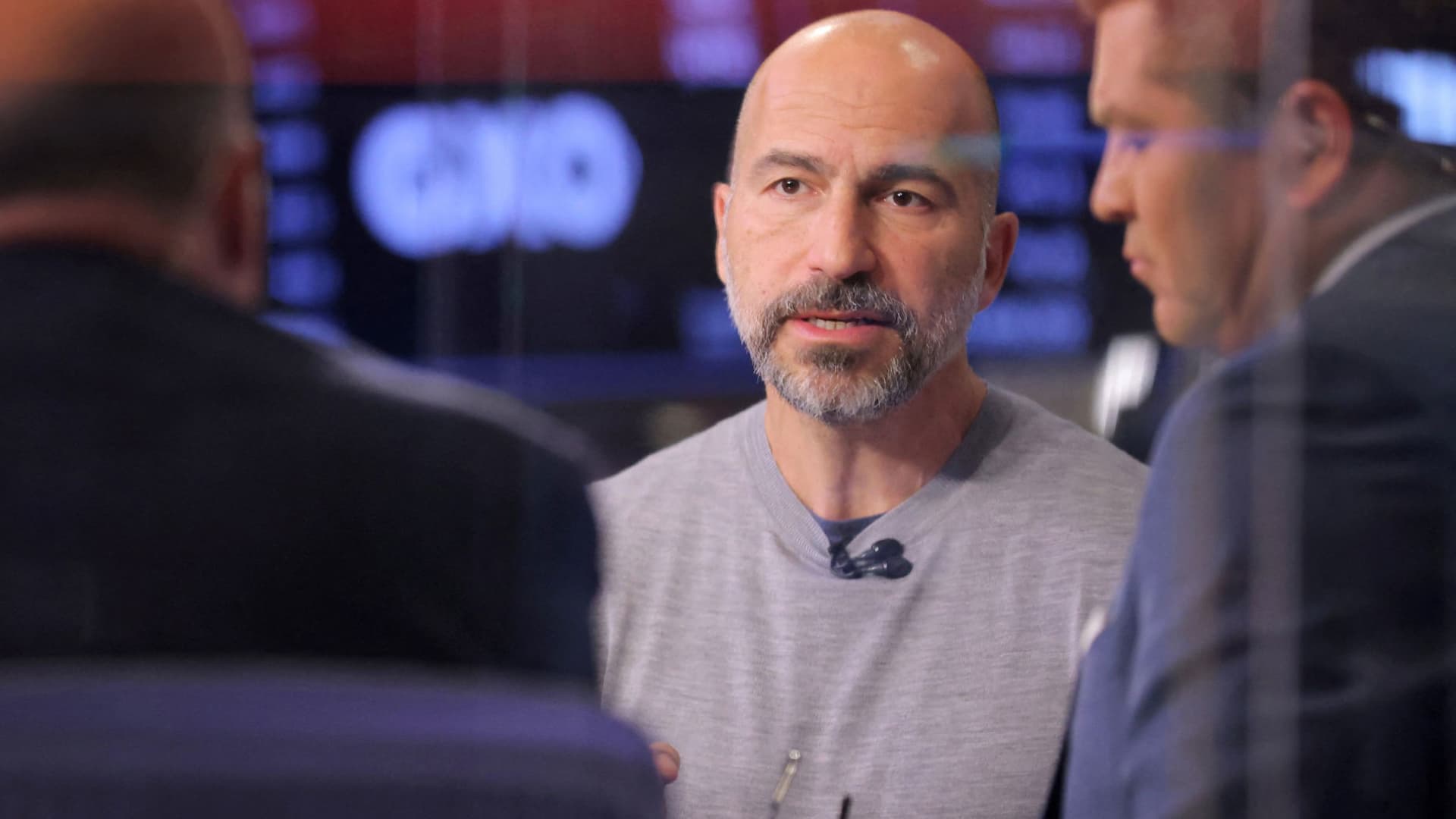Three years ago this month, California Gov. Gavin Newsom signed California Assembly Bill 5 (AB5) into law, essentially outlawing freelance journalism and most other independent contracting. Opponents of the bill warned the law would devastate the longstanding careers of many independent businesspeople in the Golden State. Three years later, it’s clear the critics had it right: AB5 has proven to be among the most ill-conceived state labor policies in recent memory.
If AB5’s restrictions were limited to California, that would be bad enough. But the Biden administration appears determined to bring these destructive labor restrictions to the national stage in the form of the Protecting the Right to Organize Act (PRO Act). Policymakers should pay heed to the damage AB5 has wrought in California and stop this disastrous policy in its tracks.
AB5 created a three-part “ABC” test used to determine whether a worker is an independent contractor or employee. The key provision of the test is that anyone performing work within the “usual course of the hiring entity’s business” must be classified as an employee, rather than a contractor.
The outcome was predictable: Many businesses and nonprofit enterprises that relied on independent contractors stopped using those workers — both because workers who had built self-sufficient careers did not want to trade the freedom of freelance work for the false benefits of employment, and because many companies couldn’t afford to convert them to full-time employees.
Countless self-employed Californians suddenly lost work opportunities and faced steeply declining incomes. Making matters worse, AB5 took effect in January 2020, mere weeks before Newsom locked down the state in response to COVID-19. Just when Californians most needed the freedom and flexibility that independent contracting provides, they were frozen out of the labor market.
AB5’s opponents — an array of workers and groups who crossed partisan and ideological boundaries — begged the legislature to reconsider upending California’s freelance economy. Lawmakers handed out exemptions to the politically connected; union leaders were put in charge of deciding which professions got an exemption. Mostly, lawmakers ignored workers’ concerns. They passed the bill with dozens of exemptions, and when the dire consequence everyone predicted came to pass, the legislature added dozens more the following session.
AB5 is so cut through with exemptions, it is defined more by what it doesn’t apply to than what it does cover. The ABC test is a single section containing just 325 words. The dozens of exemptions to the test span 10 sections and include 6,902 words. There are now more than 75 exemptions to a law that was supposed to define labor rules for the entire state.
Legislators knew AB5 would have a crippling effect on so many Californians’ ability to make a living. But even now that they’ve made Swiss cheese out of the law, they are too stubborn to simply acknowledge their fundamental mistake and repeal it.
I’ve been intimately involved in the fight against AB5, working with writers and visual journalists to challenge the law’s unconstitutional restrictions on free speech. Unfortunately, we fell short in that effort when the Supreme Court declined to hear our appeal this summer.
That was disappointing, but we’ll continue to fight. All workers deserve the freedom and flexibility that AB5 took away, and we are determined to keep working to get this law off the books. But if you’re a self-employed contractor or freelancer outside California, you have nothing to worry about, right? Don’t be so sure.
The Biden administration repeatedly has called for an AB5-style labor regime at the national level under the guise of the PRO Act, which is framed as a proposal to expand labor protections for workers who want to organize a union. However, the bill includes the same stifling three-part test to separate independent contractors from employees, following the worst parts of the AB5 model.
The PRO Act passed the House in 2019 and 2021, and President Biden renewed the call for Congress to enact the legislation this month in a Labor Day proclamation. Don’t be fooled by the innocuous “pro-worker” packaging of the PRO Act. It essentially would subject every independent worker in the United States to California’s disastrous AB5 approach to labor relations.
What’s grimly fascinating about AB5 is that it’s a labor law that neither workers nor employers like very much. But it seems beloved by politicians, organized labor leaders, and progressive activists, all of whom appear determined to ignore the lessons of California and force this damaging policy onto the national economy. It’s time for members of Congress who value labor flexibility and free markets, Democrats and Republicans alike, to drive a stake through the heart of the PRO Act once and for all.

 thehill.com
thehill.com
If AB5’s restrictions were limited to California, that would be bad enough. But the Biden administration appears determined to bring these destructive labor restrictions to the national stage in the form of the Protecting the Right to Organize Act (PRO Act). Policymakers should pay heed to the damage AB5 has wrought in California and stop this disastrous policy in its tracks.
AB5 created a three-part “ABC” test used to determine whether a worker is an independent contractor or employee. The key provision of the test is that anyone performing work within the “usual course of the hiring entity’s business” must be classified as an employee, rather than a contractor.
The outcome was predictable: Many businesses and nonprofit enterprises that relied on independent contractors stopped using those workers — both because workers who had built self-sufficient careers did not want to trade the freedom of freelance work for the false benefits of employment, and because many companies couldn’t afford to convert them to full-time employees.
Countless self-employed Californians suddenly lost work opportunities and faced steeply declining incomes. Making matters worse, AB5 took effect in January 2020, mere weeks before Newsom locked down the state in response to COVID-19. Just when Californians most needed the freedom and flexibility that independent contracting provides, they were frozen out of the labor market.
AB5’s opponents — an array of workers and groups who crossed partisan and ideological boundaries — begged the legislature to reconsider upending California’s freelance economy. Lawmakers handed out exemptions to the politically connected; union leaders were put in charge of deciding which professions got an exemption. Mostly, lawmakers ignored workers’ concerns. They passed the bill with dozens of exemptions, and when the dire consequence everyone predicted came to pass, the legislature added dozens more the following session.
AB5 is so cut through with exemptions, it is defined more by what it doesn’t apply to than what it does cover. The ABC test is a single section containing just 325 words. The dozens of exemptions to the test span 10 sections and include 6,902 words. There are now more than 75 exemptions to a law that was supposed to define labor rules for the entire state.
Legislators knew AB5 would have a crippling effect on so many Californians’ ability to make a living. But even now that they’ve made Swiss cheese out of the law, they are too stubborn to simply acknowledge their fundamental mistake and repeal it.
I’ve been intimately involved in the fight against AB5, working with writers and visual journalists to challenge the law’s unconstitutional restrictions on free speech. Unfortunately, we fell short in that effort when the Supreme Court declined to hear our appeal this summer.
That was disappointing, but we’ll continue to fight. All workers deserve the freedom and flexibility that AB5 took away, and we are determined to keep working to get this law off the books. But if you’re a self-employed contractor or freelancer outside California, you have nothing to worry about, right? Don’t be so sure.
The Biden administration repeatedly has called for an AB5-style labor regime at the national level under the guise of the PRO Act, which is framed as a proposal to expand labor protections for workers who want to organize a union. However, the bill includes the same stifling three-part test to separate independent contractors from employees, following the worst parts of the AB5 model.
The PRO Act passed the House in 2019 and 2021, and President Biden renewed the call for Congress to enact the legislation this month in a Labor Day proclamation. Don’t be fooled by the innocuous “pro-worker” packaging of the PRO Act. It essentially would subject every independent worker in the United States to California’s disastrous AB5 approach to labor relations.
What’s grimly fascinating about AB5 is that it’s a labor law that neither workers nor employers like very much. But it seems beloved by politicians, organized labor leaders, and progressive activists, all of whom appear determined to ignore the lessons of California and force this damaging policy onto the national economy. It’s time for members of Congress who value labor flexibility and free markets, Democrats and Republicans alike, to drive a stake through the heart of the PRO Act once and for all.

California has a terrible labor law. The Biden administration wants to take it national
Three years ago this month, California Gov. Gavin Newsom signed California Assembly Bill 5 (AB5) into law, essentially outlawing freelance journalism and most other independent contracting. Opponen…


